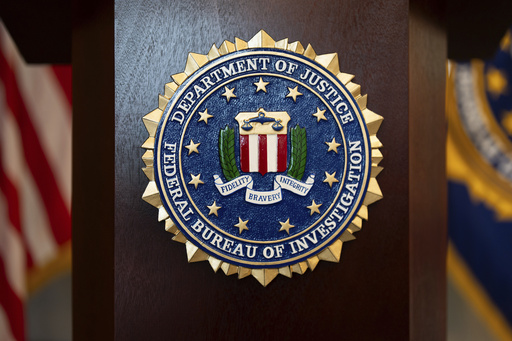
NEW YORK — A video that surfaced on social media last October showing ballots being destroyed in Pennsylvania was quickly identified by federal agencies as a case of Russian disinformation. As Election Day approached in November, bomb threats targeting polling locations in various states created some disruption, but overall voting proceeded with minimal interruption. This incident was just one of many scenarios outlined by the nation’s cybersecurity agency in their outreach efforts to state and local election officials.
However, the outlook for future support from federal agencies has become uncertain. The downsizing and disbanding of critical federal agencies under the Trump administration have negatively impacted initiatives designed to enhance election security and monitor foreign interference. This raises concerns that adversaries could exploit vulnerabilities during the next major election in the United States.
Suzanne Spaulding, who previously served as the cyber chief for the Department of Homeland Security, expressed her fears regarding these changes, stating, “Our adversaries are upping their game every day. I’m worried that we are, at the same time, tearing down our defenses.”
The recent decision by Attorney General Pam Bondi to dissolve an FBI task force dedicated to probing foreign influence operations, including those aimed at U.S. elections, further complicates the situation. The new policies also restrict actions against individuals failing to disclose lobbying for foreign governments, with Bondi claiming that these changes would allow for better allocation of resources towards more urgent issues while reducing the potential for prosecutorial misconduct.
Significant budget cuts at the U.S. Cybersecurity and Infrastructure Security Agency (CISA), which plays a crucial role in safeguarding the country’s infrastructure—particularly in election systems—have also been reported. A senior official from the Department of Homeland Security recently indicated that layoffs exceeding 130 employees at CISA had occurred, although it wasn’t clear if this included 17 individuals involved in election security tasks who had been put on leave earlier.
Additionally, CISA has paused its election security efforts while reassessing its funding and operations. This includes withdrawing from a program aimed at disseminating vital cyber defense information to state and local election officials. Such moves signal a diminished federal commitment to securing elections against foreign interference from nations such as Russia, China, and Iran, according to election specialist Larry Norden from the Brennan Center for Justice. He suggested that “it would be naive to think that the bad guys don’t get that message,” warning of reduced oversight concerning election security.
While state and local governments are responsible for managing elections in the United States, federal support has been essential in recent years for enhancing defenses against growing threats, facilitating coordination among election offices, and exposing campaigns of foreign disinformation aimed at undermining voter trust. Dean Logan, the Registrar for Los Angeles County, recounted instances where federal agencies were pivotal in alerting him to threats against his office, underscoring the importance of this federal oversight.
Experts assert that some responsibilities can only be handled by the FBI, particularly regarding investigating malign influence schemes. Darren Linvill, co-director of the Media Forensics Hub at Clemson University, emphasized that the absence of the FBI task force would be significantly felt in future electoral cycles.
In response to these developments, prominent Democrats overseeing election legislation in both the Senate and House have reached out to CISA’s leadership, expressing their “grave concern” about recent shifts and seeking clarity on how these changes might impact election security.
Despite Trump’s past support for CISA, his administration has attempted to curb government monitoring of online misinformation, equating it to censorship aimed at conservative voices. After losing the 2020 election to Democrat Joe Biden, Trump dismissed CISA’s director, Christopher Krebs, who had assured the integrity of the electoral process amid Trump’s allegations of a rigged election.
Under the Biden administration, efforts to monitor foreign influence on elections were embraced, with frequent public warnings concerning ongoing campaigns. The FBI’s collaboration with CISA and the Office of the Director of National Intelligence has been crucial for coordinating responses to foreign interference.
With the nomination of Tulsi Gabbard as the new director of national intelligence, there remains uncertainty about the future direction of the Foreign Malign Influence Center, which is set to continue until Congress determines otherwise in 2028. Gabbard indicated her focus would be on addressing the politicization of the intelligence apparatus.
Although there have been no indications that the Justice Department is retracting from investigating election-related espionage, the dismantling of a dedicated task force does have significant ramifications, according to David Salvo from the German Marshall Fund’s Alliance for Securing Democracy.
Some Republican voices have lauded the removal of the task force due to perceived politicization, including Sen. Chuck Grassley from Iowa, who voiced approval on social media for its dissolution.
The FBI has recognized the disbanding of the task force but refrained from commenting on specific personnel changes. Moving forward, the future of CISA and its capacity to fulfill its mandate is hanging in the balance, especially as criticisms from Trump allies regarding its previous efforts to combat misinformation continue to mount. DHS Assistant Secretary Tricia McLaughlin confirmed an ongoing review of CISA’s election security mission.
In light of federal ambiguities, officials like Washington Secretary of State Steve Hobbs are advocating for state-funded election security programs. Arizona’s Secretary of State Adrian Fontes remarked that while structural changes at the federal level may occur, the need for CISA’s election security services remains paramount.

